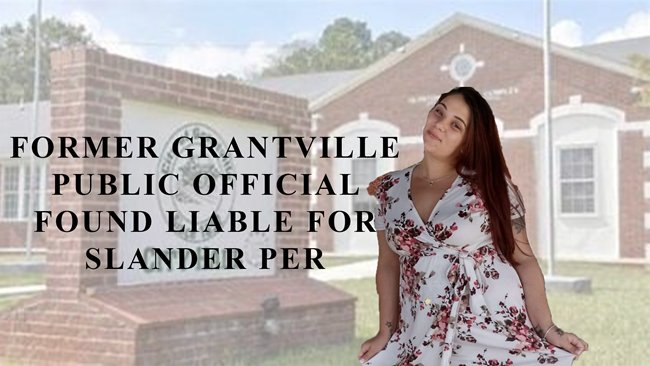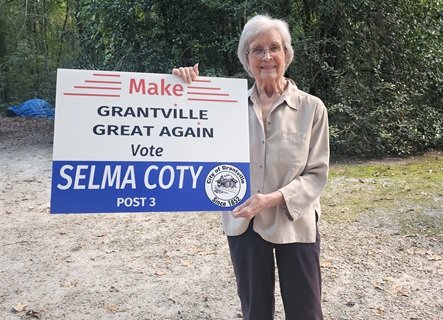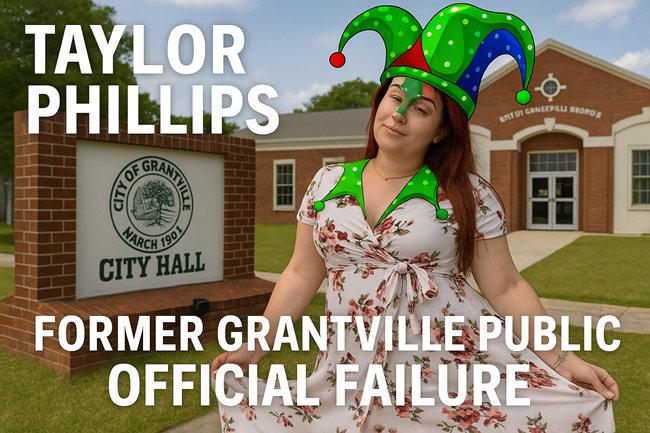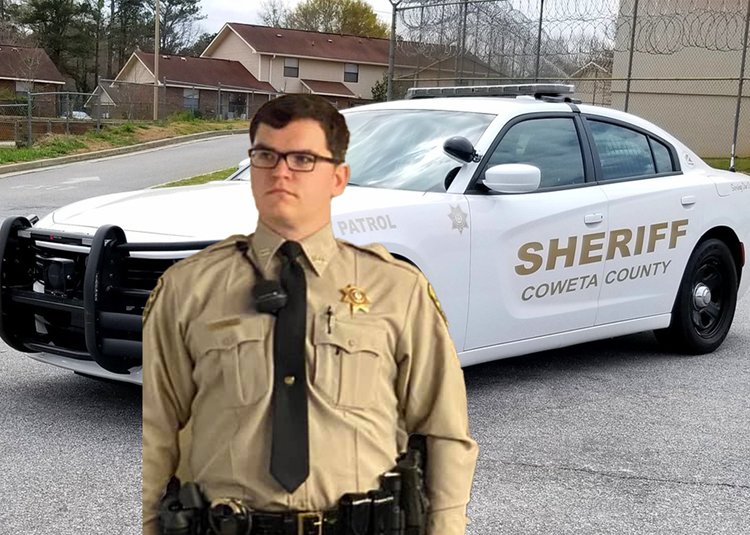Judge Rules in Favor of Georgia Transparency Founder in Defamation Case Against Former Board Member
In a significant victory for citizen journalism and free speech accountability, a Coweta County Superior Court judge has ruled in favor of Georgia Transparency founder Russell Pickron in his defamation lawsuit against former Grantville Parks and Recreation Board member Taylor Phillips.

A Coweta County Superior Court judge has granted summary judgment in favor of Georgia Transparency founder Russell Pickron, officially finding former Grantville Parks and Recreation Board member Taylor Phillips liable for defamation per se after calling Pickron a “pedophile” outside Grantville City Hall in March 2024.
The ruling marks a decisive legal victory for the citizen journalist, who represented himself in court and successfully argued that the evidence left “no genuine issue of material fact” for trial. A separate hearing to determine damages and punitive awards is scheduled for November 10, 2025, in Newnan.
Court Finds False Statement and Malice
According to the Court’s order granting summary judgment, the judge agreed with Pickron’s argument that Phillips’ actions satisfied the legal standard for slander per se under O.C.G.A. § 51-5-4(a)(2), which presumes damages when someone is falsely accused of a crime involving moral turpitude.
Evidence in the record included Phillips’ own sworn interrogatory responses, where she admitted calling Pickron a pedophile but also admitted she had no knowledge of any charges or investigations related to him. The court noted that Phillips’ failure to retract her statement or provide any factual support confirmed there was no legitimate dispute for a jury to resolve.
Pickron’s filing cited Georgia case law including Cottrell v. Smith, 299 Ga. 517 (2016), which defines false criminal accusations as slander per se — statements so inherently damaging that harm to reputation is legally presumed.
Public Incident Caught on Camera
The dispute originated from a public encounter outside Grantville City Hall on March 25, 2024, during which Phillips, who had been appointed to the city’s Parks and Recreation Board earlier that day, made the defamatory statement in the presence of multiple residents.
The moment was captured on video, later submitted to the court as evidence establishing both publication and public setting.
In his Statement of Undisputed Material Facts, Pickron documented a series of events following the incident:
-
Three separate written retraction requests sent to Phillips between March and November 2024,
-
A court order on July 11, 2025, compelling her to answer interrogatories, and
-
Her admissions that no written retraction was ever made, and that any “verbal retraction” occurred only “under duress.”
Defendant’s Failure to Defend
The motion detailed Phillips’ repeated noncompliance with discovery and failure to produce any rebuttal evidence. Despite multiple court orders and opportunities to present proof, she did not dispute that she made the statement or that it was false.
The judge ruled that Pickron had met the burden for summary judgment — showing there were no factual issues for trial and that judgment as a matter of law was proper.
“This ruling isn’t just about my name — it’s about the principle that public accusations must be backed by facts,” Pickron said after the decision. “False statements, especially by people connected to government, carry weight and consequences. This case proves that truth still matters.”
False Light and Emotional Harm
In addition to the defamation claim, Pickron’s motion also sought judgment on false light invasion of privacy, citing Howell v. Terminix, 289 Ga. App. 369 (2008), which defines false light as publicly portraying someone in a misleading or offensive way.
The Court’s ruling found the evidence supporting both defamation and false light, noting that Phillips’ words not only damaged Pickron’s reputation but also publicly cast him in a false and degrading image.
Ethics and Public Duty
The court record also confirmed that Phillips’ conduct occurred while she was serving as a public official under the City of Grantville’s Code of Ethics. That ordinance identifies board and committee members as public officials and requires them to act with honesty and integrity.
Pickron argued that this heightened the seriousness of the statement because it came from a person in a position of civic trust.
“Public service comes with public responsibility,” Pickron said. “If we want honest government, we need honest speech from those who represent it.”
Next: Damages Hearing in November
Because the Court has already ruled in Pickron’s favor on liability, the November 10 hearing will focus exclusively on damages — including general, emotional, and punitive compensation.
Under O.C.G.A. § 51-12-5.1, punitive damages may be awarded in cases involving “willful misconduct or malice,” both of which the Court found in the record.
The upcoming hearing will not involve a jury; damages will be determined directly by the judge.
Broader Implications
Legal observers say the decision reinforces both defamation accountability and citizen journalism rights under Georgia law. It demonstrates that public figures cannot hide behind informal settings or online commentary when making harmful statements about private citizens.
This case also serves as a broader reminder to local officials and board members that the same transparency and truth standards they demand from others apply to them as well.
“I hope this sends a message that truth matters,” Pickron said. “Transparency only works when honesty goes both ways.”
Share
What's Your Reaction?
 Like
5
Like
5
 Dislike
0
Dislike
0
 Love
1
Love
1
 Funny
0
Funny
0
 Angry
0
Angry
0
 Sad
0
Sad
0
 Wow
1
Wow
1












